Review of Three Sisters
Introduction
Three Sisters by Anton Chekhov is considered by those in the know to be a masterpiece of 20th Century drama. I don`t know about that. To be honest with you the whole enterprise smack soo much of a school outing to see something you`re studying in English Lit. Having said that, I can`t argue that this is easily one of the most stellar theatrical performances committed to film.
Anything that Lord Olivier did in his career has that aura of theatrical magic about it, and while Three Sisters doesn`t quite have the cachet of his rabble-rousing wartime production of Henry V, it is something to behold. The movie was Olivier`s first directing gig since The Prince & The Showgirl (opposite Marilyn Monroe). By 1970, the great thespian had obviously recovered enough to try his hand at this weighty (155min) production.
To quote the write-up for the disc, "the three sisters of the title, Olga, Masha, and Irina Prozorov evade the dull daily grind of their lives in a small provincial garrison town with dreams of love and escape, of moving to Moscow with their respective military suitors. As the play progresses, the hopes of the sisters are gradually eroded." This makes for slow, very wordy viewing, made worse by the staging of the action (the term used very loosely in this instance). Photographed with very static cameras by the legendary Geoffrey Unsworth, little concession is made to convert the play from stage to screen and one is more than conscious of a staginess to the whole enterprise. The movie is little more than a simple record of Olivier`s National Theatre production of the play, and as such is something of a disappointment, although theatrical buffs might get something out of it. Curiously the previous 1966 production by Lee Strasberg`s Actor`s Studio suffered similarly, with the added handicap of monochrome.
The movie has an impeccable pedigree. Shot at Shepperton Studios, directed by Olivier, photographed by Geoffrey Unsworth, with music by Sir William Walton. The National Theatre cast included Alan Bates, Olivier himself, Joan Plowright, Derek Jacobi and Ronald Pickup. It was released in the UK through British Lion. This presentation is the American Film Theatre showcase for the movie, and includes a good deal of support material, even though the presentation does remind me uncomfortably of watching a movie on the Turner Classic Movie channel.
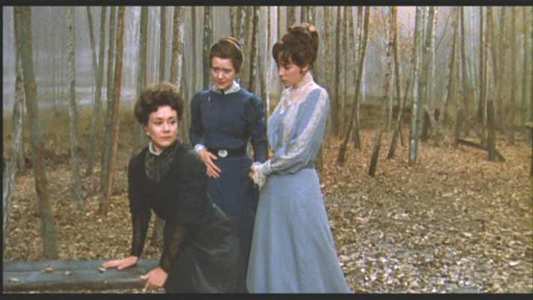
Video
Presented in anamorphic 1.85:1, the movie is not in the best of condition. One might say it has seen better days, but I suspect it has always looked a little rough given the period it was made. The picture suffers from a good deal of handling damage, some of it printed in. Geoffrey Unsworth`s fondness for diffusion lends a milky look to proceedings and if I`m brutally honest, the movie is a little blurry although whether that is a problem with the transfer or a generational issue I`m not entirely sure. There is a steady, printed-in flicker that is especially evident on the titles. Suffice to say it`s not a particularly good transfer from pretty grotty materials.
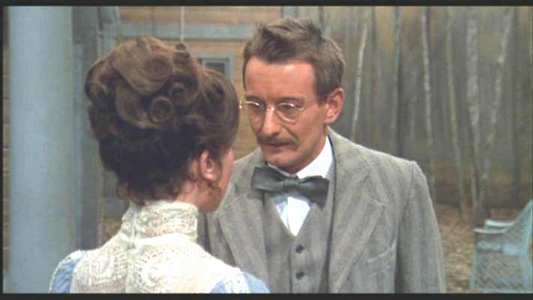
Audio
The soundtrack of the movie is distinctly reedy, with live sound very evident. William Walton`s score is given little support, and the whole thing lacks clarity and depth. The original soundtrack is reproduced here in Dolby Digital 2.0 Mono.

Features
The movie is supported by quite a range of supplementary materials. Unfortunately, subtitles are not included. There is an extended interview with Alan Bates; an American Film Theatre Trailer Gallery; The AFT Cinebill for Three Sisters (text); a Stills Gallery; Poster; a textual Q&A Interview with Ely Landau; and a text article - "Anton Chekhov and Three Sisters" by Michael Feingold, Chief Theatre Critic, The Village Voice.

Conclusion
Heavy going, but rewarding if you were studying the play. As I`m not, I found it heavy going. It`s not an adaptation of a stage play for the screen, it`s just a film recording of a stage play and is acted just that way. There`s no intimacy, and all the performances are big and stagey in spite of the piece being recreated on sound stages rather than theatre stages.
Oh, and it`s got nothing to do with the little Monkees-type bloke off Star Trek.
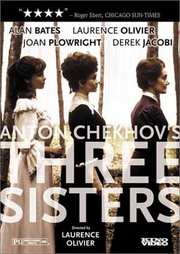


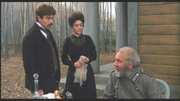
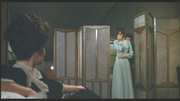
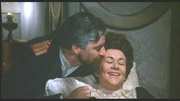
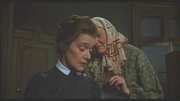
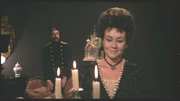
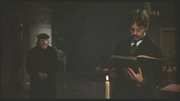
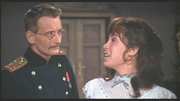
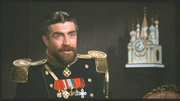
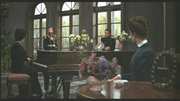
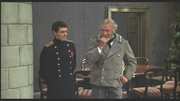
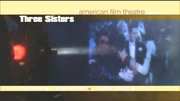
































Your Opinions and Comments
Be the first to post a comment!